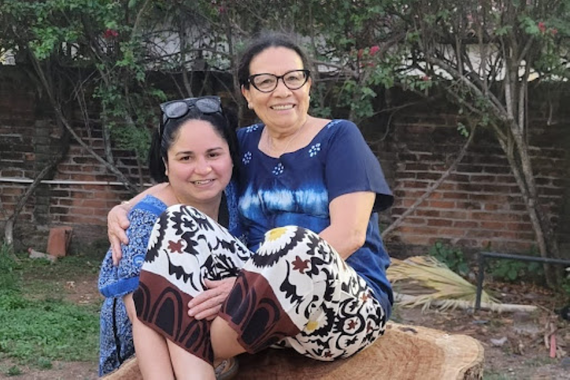Letter to Prospective Applicants
Should you go to Graduate School?
It has long been true in the humanities and humanities-leaning social sciences that job prospects and salaries are not commensurate with the years of work that graduate students put in, and that the only reason to pursue a PhD is because you love the subject. But this injunction is especially true today when the job market for graduate students in history is poor, particularly tenure-track jobs. If you decide to go to graduate school, make sure you are doing so with the understanding that it may not pay off with a stable, tenure-track job, regardless of how brilliant or conscientious you are.
Choosing a Graduate Program and Advisor
In choosing the programs to which you will apply, pick the ones with prospective advisors and other scholars whose research and intellectual interests match your own as closely as possible. This matters for two reasons:
First, most faculty will not be able to admit more than one or two advisees a year to mentor, subject to the overall constraints of department-level matriculation numbers. Thus, when faculty must choose between potential advisees, they are more likely to support those whose research interests speak closely to their own.
Second, the program you choose with have a crucial impact on who you become intellectually. For example, if you work with scholars who prioritize disciplinary scholarship, you are more likely to become a disciplinary scholar; if you work with more interdisciplinary scholars, you are more likely to produce interdisciplinary scholarship.
Should you pursue a PhD, you will work for many years with your advisor and these other scholars. Therefore, you must choose programs carefully: research not only potential advisors but other faculty in the department and across the college; read the work of your potential advisor and of at least two others in the program or college whose work resonates with your own interests. This will help to ensure that you will have a good community of scholars to support your own research interests.
Prior to applying to any Ph.D. program, do contact the faculty members who you are considering as advisors. Let them know that you are thinking of applying to the program. Ask them if they are accepting advisees for the upcoming year; ask them if they believe you are a good fit for the program; and ask them for supplementary information, such as their advising style, their current intellectual interests, other faculty and resources that you should look into prior to submitting your application.
Applying to the Department of History, University of Minnesota
Potential applicants should read our department’s website thoroughly and carefully. There is a lot of information to be found there. Pay special attention to those attributes that set our program apart, to our areas of study, to our program requirements, to our funding package, and to our application instructions.
Here, I would like to point out that the department has placed a call for applicants with an interest in policing and carcerality. This theme is broadly defined, so you can approach it creatively. We estimate that around half of the students we admit (approximately 4) will be from outside this theme. So, if this is not what you work on, this need not hinder you from applying.
In recent years, our department’s matriculation goal has been nine students per year. Things have been made more difficult still by the financial transformations public universities in the US are facing currently: our incoming cohort across all subfields will be half of what it was just a few years back. This is why we strongly recommend that students apply to several universities. However good your application is, there is always an element of chance in the process, and it makes sense to spread the risk.
Your Application
In our department, like in most departments in most US universities, a committee of faculty from across the department evaluates applications: your prospective advisor is only the first clearing point for your subfield. After, the admissions committee will consider applications across subfields, often with the goal of creating synergy with the cohort as a whole. This means you should write your application with a general audience of historians in mind, and you should not expect your prospective advisor’s support to result in your admission.
Please read the department’s webpage on how to apply, “Requirements & Instructions” thoroughly and carefully. Below are a few notes about various components of your application package.
First, your research statement and writing sample. Together, these are perhaps the single most important components. Your research statement will indicate what you want to work on when you join the department. At least with us, you are not bound to work on this project, and projects are often modified over the years. However, this statement serves as an indication of your vision, potential, and capabilities as a historian. Your writing sample is evidence of your capacity to undertake the work that you propose to do in your research statement and should display your skills in research, analysis, and writing.
Second, letters of reference. These should attest to your intellectual and academic performance and potential. If you have received a master’s degree, only include a letter from an undergraduate instructor if you think it will be exceptionally strong. If you are not applying from the US, do make sure that you get letters from people who understand the American style of writing recommendations. That is, they should be able to write at least one page, if not more, on your intellectual and academic capabilities. In some other educational systems, a letter or recommendation is somewhat abbreviated to four or five sentences or only addresses the applicant's character instead of their intellectual work. While this might work elsewhere, here it is almost always “a kiss of death.”
Third, your test scores. Our department does not require GRE test scores. The University does require students from select countries to provide evidence of English language skills. This is because, at least here, graduate student funding packages rely very heavily on teaching assistantships. Should an applicant have English language skills deemed insufficient to teach, they will need to take extra English language courses.
Fourth, diversity statement. The diversity statement is currently optional and will be considered as part of the application review as it relates to challenges the applicants have faced, skills they have built, or lessons that have learned that will provide them a unique ability to contribute to our scholarly community. Remember that diversity can be along various registers: caste, class, disability, gender, political beliefs, and sexuality. I would very strong urge you to submit a diversity statement wherever the departments ask for one: it is an opportunity to present yourself more holistically.
Funding
Please read the department’s webpage, “Graduate Student Funding,” for information on our funding package. We rely heavily on teaching assistantships to fund our graduate students. Sadly, like a lot of other public universities, this support is not comparable to that at some of the better-endowed universities. This is another reason why you should apply to several universities.
After Admission
If you are admitted, you should request that your prospective advisor put you in touch with a couple of their advisees (past and present). A former advisee has had time to reflect on their experiences and their outcomes; and advanced, current advisee will have had many more contemporary experiences than a more recently admitted student. This is your opportunity to get a better understanding of this person as an advisor and mentor. It is also an opportunity for you to get better insight into the department’s culture and feeling. This allows you to make a more informed decision on which program to choose. If you are unsure of what questions to ask, a Google search can help. One question you might ask is, “are you happy with your choice to come here?” Remember, whether good or bad, to treat the information you learn confidentially.
Additional Resources
Below are some additional resources that might help you.
Here is some general advice from the website of the AHA on how to apply to grad school. Much of it is more relevant to US-based students, but others too find the tips helpful.


